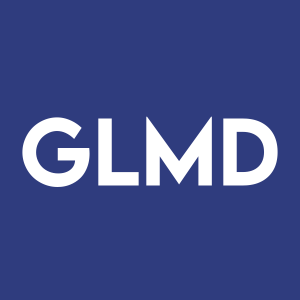Galmed Reports Significant Anti-Fibrotic Effects of Aramchol in PSC Models
Rhea-AI Summary
Positive
- Aramchol demonstrated significant anti-fibrotic effects in PSC mouse models with 2-fold inhibition
- Previous successful clinical trials (ARREST Phase IIb and ARMOR Phase III) showed improvement in liver fibrosis
- Drug shows potential for treating multiple conditions: PSC, CCA, and HCC
- Company positioned to advance to Phase 2/3 clinical studies in GI oncology indications
Negative
- Still in pre-clinical stage for PSC indication
- No direct revenue impact in the near term
- Will require additional clinical trials before potential commercialization
News Market Reaction – GLMD
On the day this news was published, GLMD gained 0.78%, reflecting a mild positive market reaction.
Data tracked by StockTitan Argus on the day of publication.
- Aramchol, an SCD1 inhibitor, significantly attenuates and prevents biliary fibrosis in mouse models of primary sclerosing cholangitis (PSC)
- Aramchol treatment leads to significant inhibition (2-fold, p<0.05) of TGFβ-induced hepatic fibrosis pathways while upregulating peroxisome proliferator activated receptor (PPAR) signaling
- Aramchol's effect in the prevention and treatment of biliary and hepatic fibrosis, provides the rationale for assessing Aramchol in further clinical studies in patients with fibrosis driven liver cancers

Fibroinflammatory cholangiopathies, such as PSC and primary biliary cholangitis (PBC), are characterized by cholestatic injury, inflammation and fibrosis-induced obstruction of ducts, driving disease-related complications.
Aramchol, an SCD-1 inhibitor, both attenuated and prevented biliary fibrosis in mouse models of PSC. Aramchol significantly reduced, in a dose-dependent manner, the increased expression of the fibrotic marker plasminogen activator inhibitor-1 and hepatic stellate cell-activating genes (VEGFA and PDGFB) in TGFβ-activated transformed human cholangiocyte cells (H69) and mouse large biliary epithelial cells (MLEs). Aramchol led to a significant inhibition of TGFβ-induced hepatic fibrosis pathways while upregulating peroxisome proliferator activated receptor (PPAR) signaling.
PSC carries a
As previously announced, in a randomized, double-blind, placebo-controlled phase IIb trial (ARREST) and an open label extension of a phase III study (ARMOR), Aramchol demonstrated significant improvement in liver fibrosis. Liver fibrosis is strongly associated with Hepatic Cellular carcinoma (HCC) with 80–
Aramchol's effect in the prevention and treatment of hepatic and biliary fibrosis, along with its excellent safety profile in clinical trials, provide the rationale for assessing Aramchol in further clinical studies in patients with biliary fibrosis, particularly PSC, and hepatic cancers, such as CCA and HCC.
Sayed Obaidullah Aseem, M.D., Ph.D., in Stravitz-Sanyal Institute for Liver Disease & Metabolic Health Virginia Commonwealth University commented, "Aramchol attenuates biliary fibrosis in two mouse models of biliary fibrosis along with antifibrotic effects in cholangiocytes, myofibroblasts and hepatocytes. These observations combined with its excellent clinical trial safety data provide the rationale for further clinical studies of Aramchol in patients with biliary fibrosis, in particular PSC, where treatments are desperately needed."
Allen Baharaff, President and CEO of Galmed Pharmaceuticals commented, "The new findings reinforce the anti-fibrotic activity of Aramchol previously observed in a wide range of pre-clinical models, in addition to the known effects in liver fibrosis. Together with the robust anti-fibrotic effects of Aramchol previously demonstrated in clinical studies of patients with NASH and advanced fibrosis, these findings could potentially enable Galmed to transition to Phase 2/3 clinical studies with Aramchol in GI oncology indications."
About Galmed Pharmaceuticals Ltd.
We are a biopharmaceutical company focused on the development of Aramchol. We have focused almost exclusively on developing Aramchol for the treatment of liver disease and we are currently seeking to advance the development of Aramchol for oncological indications outside of NASH and fibrosis. In addition, as part of our growth strategy, we are actively pursuing opportunities to expand and diversify our product pipeline specifically targeting cardiometabolic indications and other innovative product candidates that align with our core expertise in drug development.
Forward-Looking Statements:
Forward-looking statements relate to anticipated or expected events, activities, trends or results as of the date they are made. Because forward-looking statements relate to matters that have not yet occurred, these statements are inherently subject to risks and uncertainties that could cause our actual results to differ materially from any future results expressed or implied by the forward-looking statements. Forward-looking statements may include, but are not limited to, statements relating to our product development efforts, business, financial condition, results of operations, strategies or prospects, as well as statements, other than historical facts, that address activities, events or developments that we intend, expect, project, believes or anticipate will or may occur in the future. Many factors could cause our actual activities or results to differ materially from the activities and results anticipated in forward-looking statements, including, but not limited to, the development and approval of the use of Aramchol or any other product candidate for indications outside of non-alcoholic steatohepatitis, or NASH, also known as metabolic dysfunction-associated steatohepatitis, or MASH, and fibrosis or in combination therapy; the timing and cost of any pre-clinical or clinical trials of Aramchol or any other product candidate we develop; completion and receiving favorable results of any pre-clinical or clinical trial; regulatory action with respect to Aramchol or any other product candidate by the
Logo: https://mma.prnewswire.com/media/1713483/Galmed_Pharmaceuticals_Logo.jpg
![]() View original content:https://www.prnewswire.com/news-releases/galmed-reports-significant-anti-fibrotic-effects-of-aramchol-in-psc-models-302453710.html
View original content:https://www.prnewswire.com/news-releases/galmed-reports-significant-anti-fibrotic-effects-of-aramchol-in-psc-models-302453710.html
SOURCE Galmed Pharmaceuticals Ltd.







